Cassius Dio’s Roman History: A Greek Perspective on the Empire
Cassius Dio, also known as Dio Cassius, was a notable Roman historian and senator of Greek origin who lived during the Roman Empire.
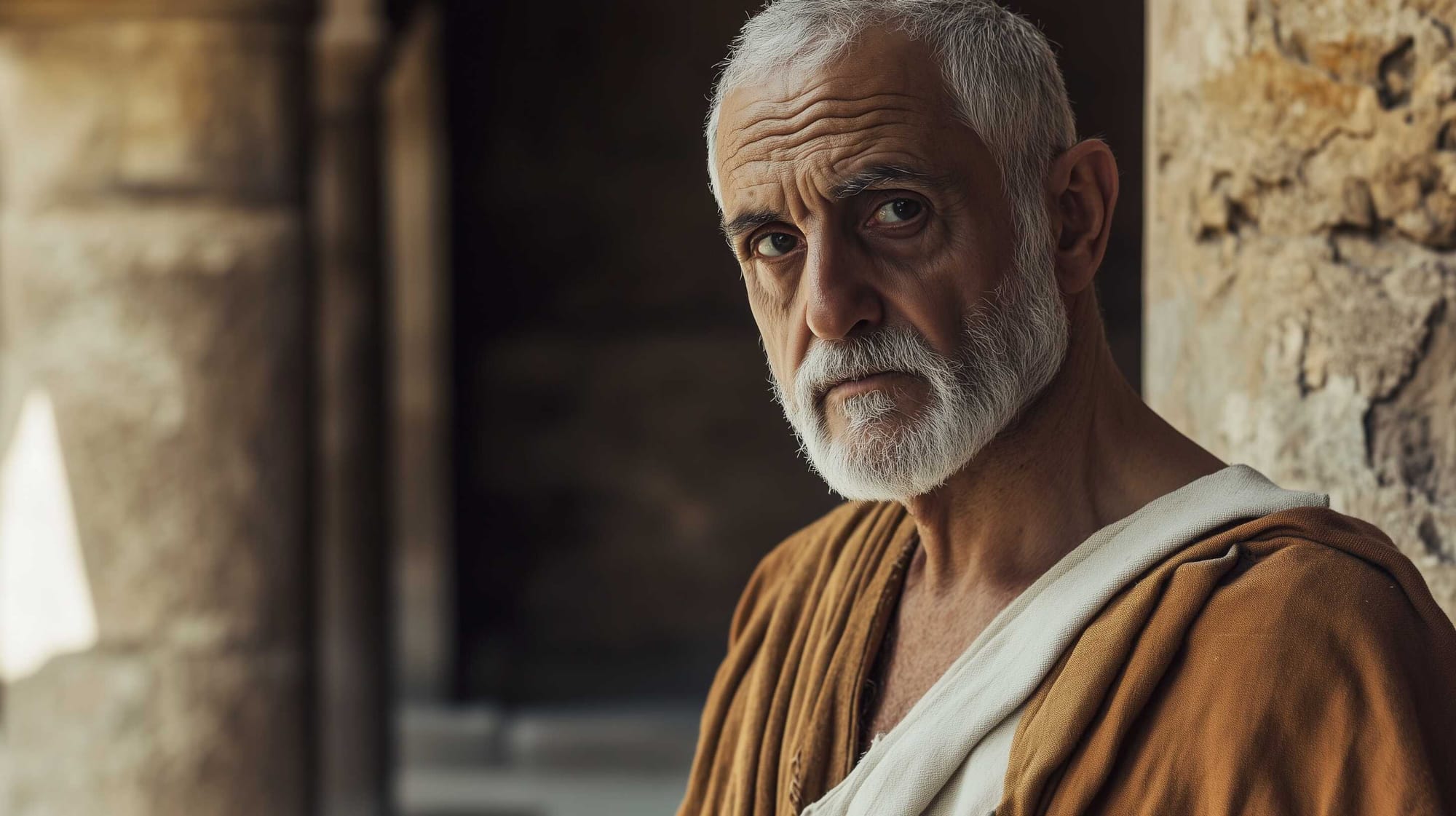
Cassius Dio was born in Nicaea, Bithynia (present-day Iznik, Turkey). His family was wealthy and of senatorial rank. Dio had a distinguished career in Roman politics. He served as a senator and held various important positions, including the post of consul twice, once as a suffect consul in 220 AD and then as an ordinary consul in 229 AD alongside Severus Alexander.
Throughout his career, he also served as a governor in several provinces, including Africa, Dalmatia, and Pannonia. His administrative and military experiences provided him with insights into the workings of the Roman Empire.
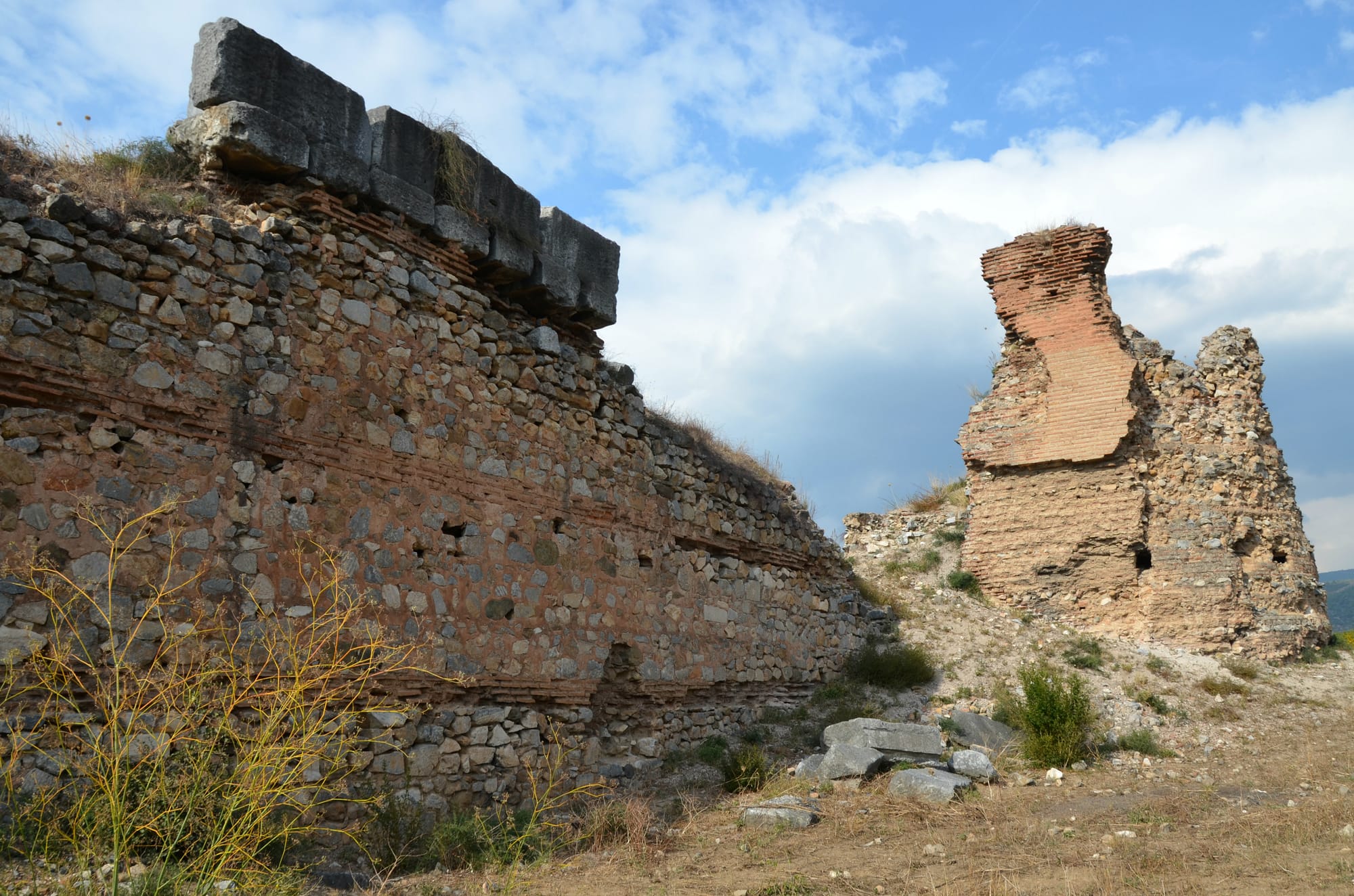
Who was Cassius Dio?
Cassius Dio was likely a close relative, possibly a grandson, of the renowned orator Dio Chrysostom, from whom he took the names Dio and Cocceianus, and like him, hailed from Bithynia. His father, Cassius Apronianus, served as a Roman senator and governor of Cilicia and Dalmatia. The correct Roman order of Dio's names, with his praenomen unknown, has been established, though the familiar Greek order Δίων ὁ Κάσσιος remains widely recognized.
Most information about Dio's life comes from his historical writings. Born between 155 and 164 AD, he accompanied his father during his governorship in Cilicia and moved to Rome around 180 AD. He joined the senate and witnessed the reign of Commodus firsthand.
Nominated for the praetorship by Pertinax in 193 AD, he assumed office under Septimius Severus after Pertinax and Julianus were overthrown. Dio admired Severus' early policies, which inspired him to write a history, starting with an account of omens predicting Severus' rise, which received positive feedback from Severus.
Dio then wrote about events leading up to Severus' accession and decided to document the entire Roman history. He retired from public life during Severus' reign, working on his history at his estate in Capua. Though he implies he was consul under Severus, this likely occurred around 222 AD, before his proconsulship in Africa. Caracalla took him on his Eastern campaign in 216 AD, but Dio did not join the Parthian war. Macrinus appointed him curator of Pergamum and Smyrna, and he continued under Elagabalus.
Under Alexander Severus, he served as proconsul of Africa and governor of Dalmatia and Upper Pannonia, becoming consul for the second time in 229 AD. His disciplinary actions in Pannonia made him unpopular with the praetorians, leading to his retirement to Nicaea due to a foot ailment. This is the last personal detail he provides, and his death likely occurred shortly after his retirement, as he was over seventy years old.
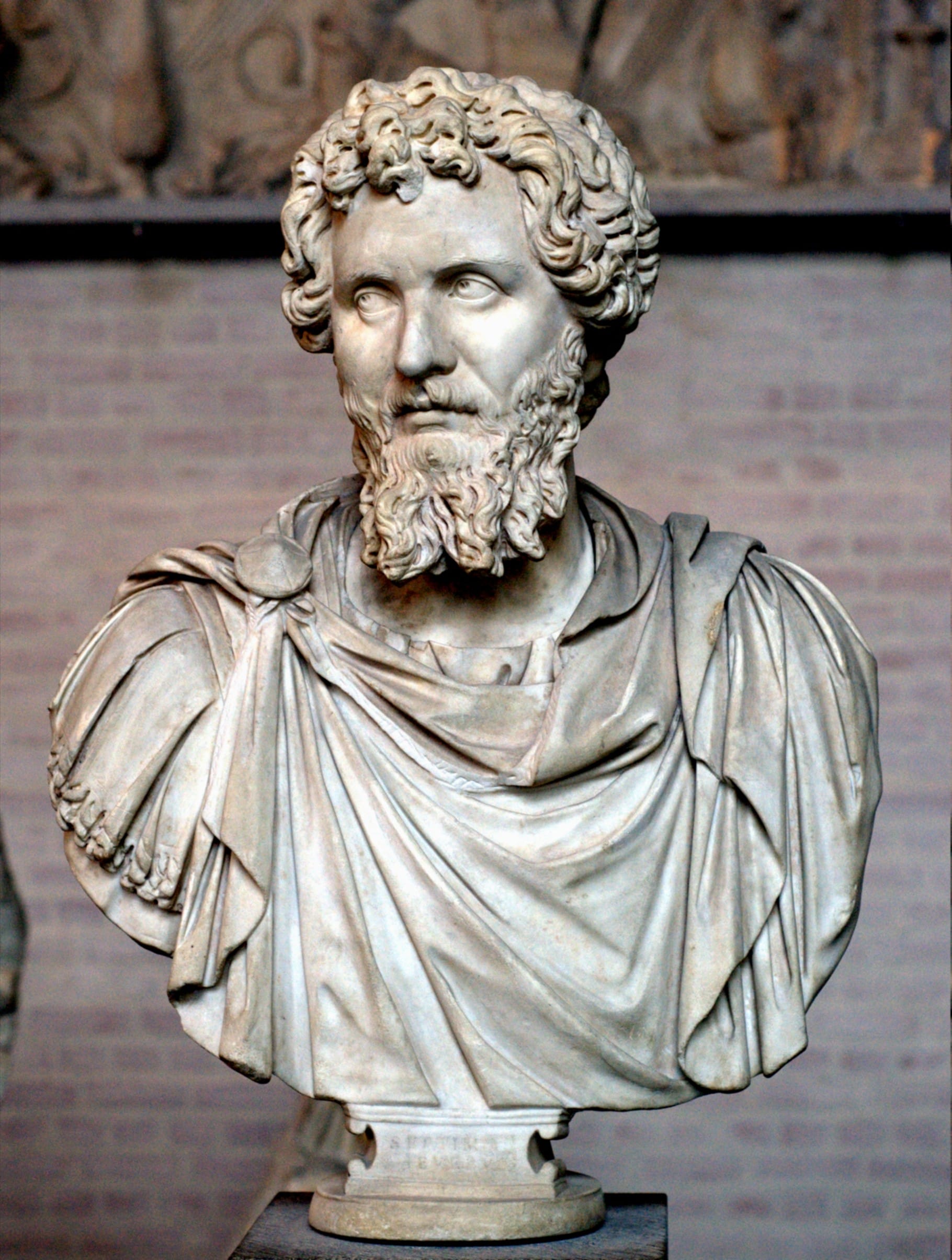
Dio's notable work is his Roman History (Ῥωμαϊκὴ ἱστορία or Ῥωμαϊκας), originally eighty books, covering from Aeneas' landing to his second consulship in 229 AD. The later years were briefly treated, added as an afterthought. He spent ten years gathering material until Severus' death, reading extensively, and twelve years writing the work, approximately from 200-222 AD.
Suidas attributes five other works to Dio, but it is likely that only one or two were actually his. A possible Life of Arrian and an account of Hadrian's reign might have been incorporated into his larger work.
Cassius Dio’s journey through the Roman Empire
The historian Cassius Dio was from a prominent family in Nicaea, one of the key Greek cities competing for dominance in the Roman province of Bithynia. The Cassii family had been notable in Nicaea since at least Nero's time, and it is suggested that an ancestor of Dio was granted Roman citizenship by Brutus and Cassius before the battle of Philippi.
Cassius Dio also carried the additional cognomen Cocceianus, indicating a connection to Dio the sophist and philosopher from Prusa, suggesting that Dio inherited the name Claudius through his father's marriage to a descendant of Dio Cocceianus of Prusa.
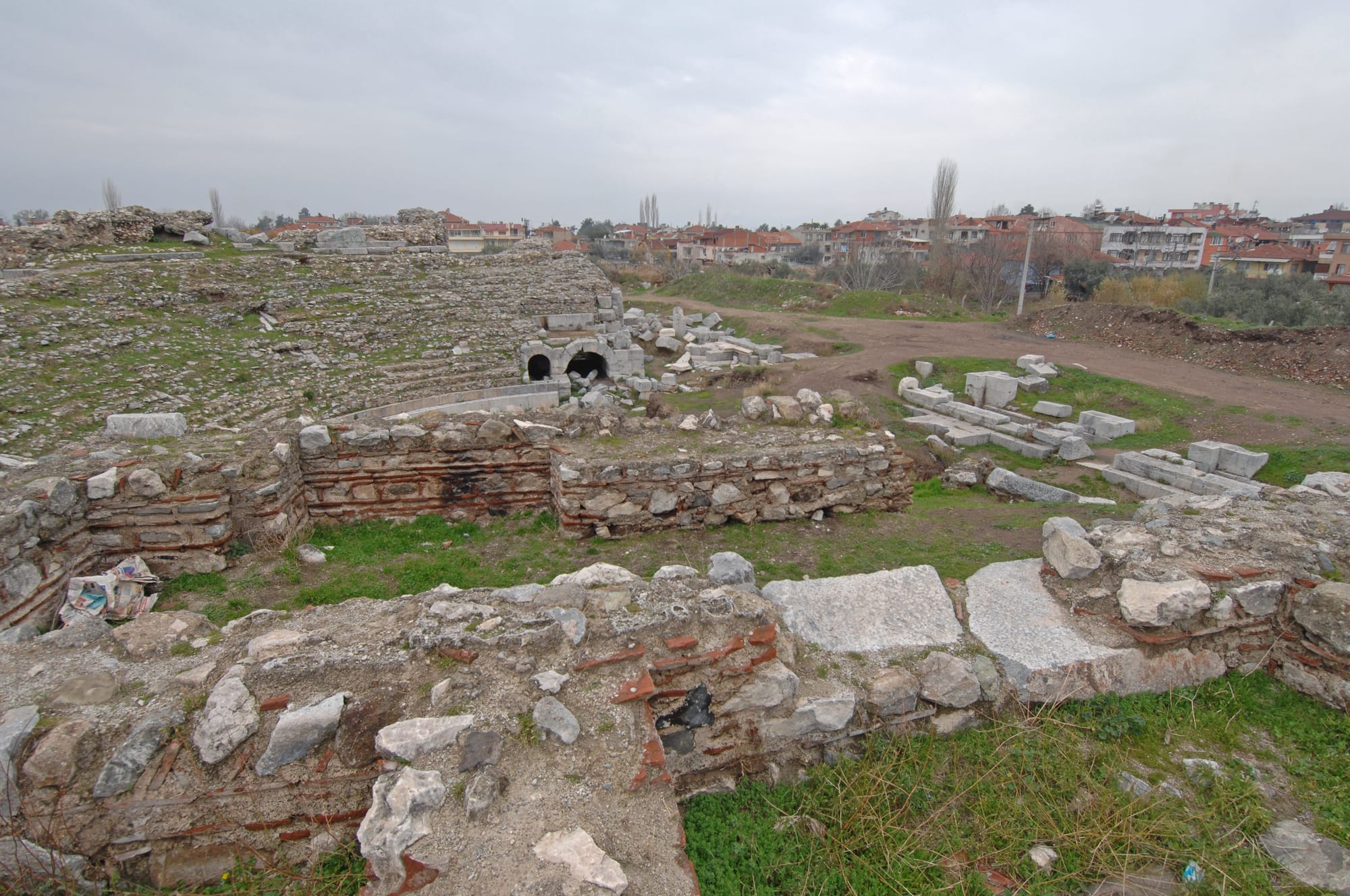
Dio's father, M. Cassius Apronianus, is recorded as having been proconsul of Lycia and Pamphylia, a legate of Cilicia, and a legate of Dalmatia. Given that governors of Cilicia typically moved on to the consulate and Dalmatia was a consular post, Apronianus must have been a suffect consul, probably early in Commodus' reign.
Dio accompanied his father to Cilicia, where he uncovered the truth about Trajan's death and Hadrian's accession in 117. Additionally, unless Xiphilinus significantly altered the meaning in his abbreviation, Dio learned about Commodus' execution of the Quintilii brothers during this period.
As aforementioned, Cassius Dio composed an eighty-book history of Rome in the early third century CE, spanning from the city's founding to about 229 CE. The final books (73-80) cover the reign of Commodus up to the early reign of Alexander Severus, with Dio providing firsthand accounts and personal observations. This section of his history includes details of his own positions and interactions with emperors.
The work concludes uniquely with Dio’s retirement, rather than a significant historical event, and ends with a quotation from Homer’s Iliad where Zeus saves Hector from battle. This personal and somewhat foreboding ending indicates Dio's relief at leaving the tumultuous period he describes. Dio characterizes this era as one of "iron and rust," filled with instability and few positive aspects.
The memoir-like quality of the contemporary sections suggests that Dio sees himself as both a participant in and a critic of his time, creating a dual identity that enhances his authority as a historian. His narrative serves as a reflection on his political life and the era, offering a critical perspective on the events he witnessed.
“I spent ten years in collecting all the achievements of the Roman from the beginning to the death of Severus, and another twelve in writing my history: subsequent events will be recorded to wherever it may be possible"
Cassius Dio
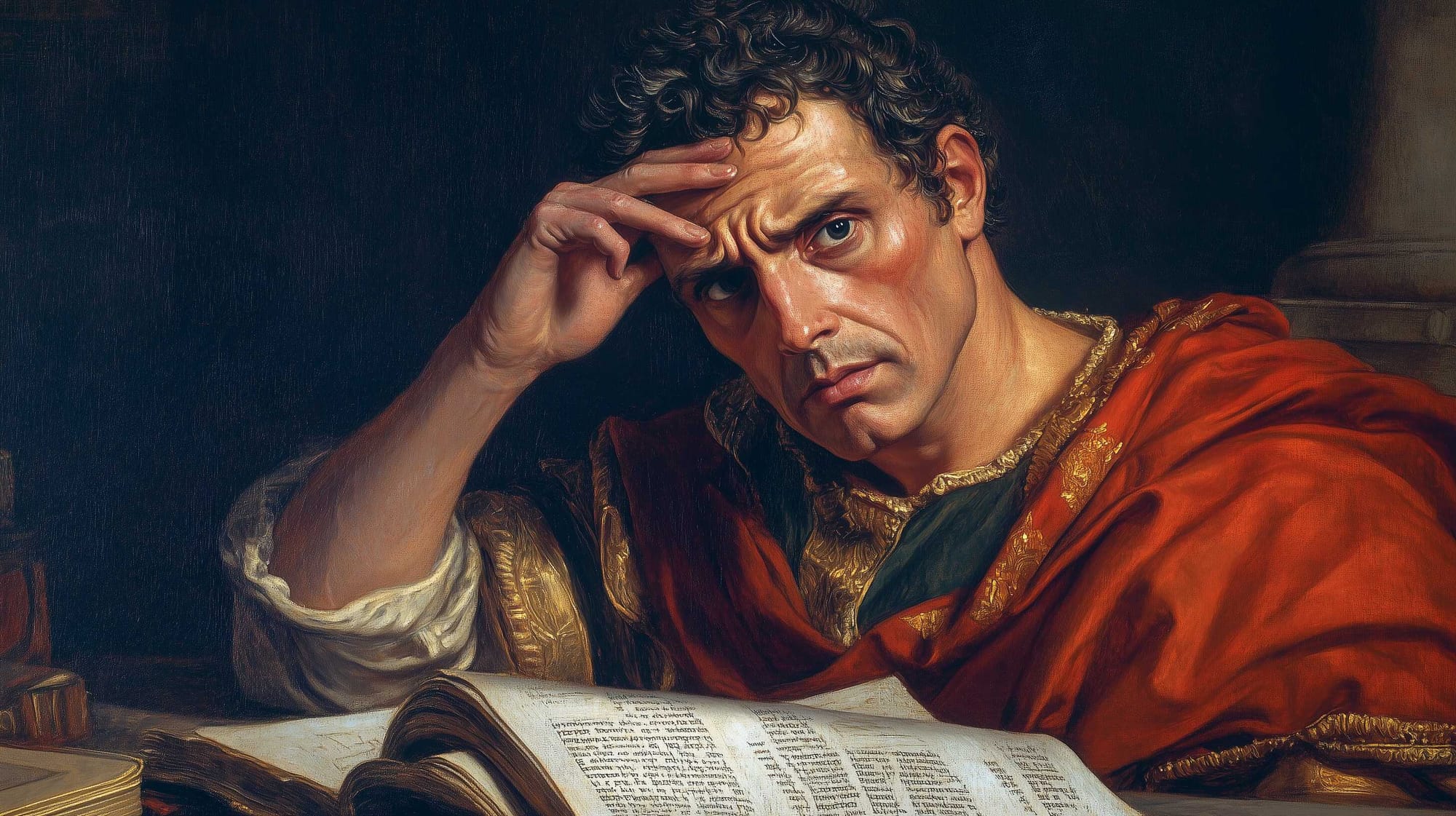
Cassius Dio’s Roman History
“It is my desire to write a history of all the memorable achievements of the Romans, as well in time of peace as in war, so that no one, whether Roman or non-Roman, shall look in vain for any of the essential facts. "
Cassius Dio, Roman History
Cassius Dio’s Narration
Dio appears to align more with Herodotus than with Thucydides, despite commonly being considered an imitator of the latter. However, the narrator's presence varies in intensity throughout the work. Narratorial interventions are especially prevalent in sections addressing significant periods of Roman history, such as the shift from the republic to the principate, and in the final books, where Dio adopts the role of an internal narrator.
The narrator frequently highlights his role as the organizer and storyteller of the history. Both sections of narrative and digressions are often prefaced by a narratorial comment, usually in the first person and sometimes providing evaluations of the events about to be described. Two examples:
"I will give an account of the so-called camelopard, because it was then introduced into Rome by Caesar for the first time and exhibited to all."
"I shall now relate in detail also such of his acts as call for mention, together with the names of the consuls under whom they were performed."
(Cassius Dio by T. Hidber)
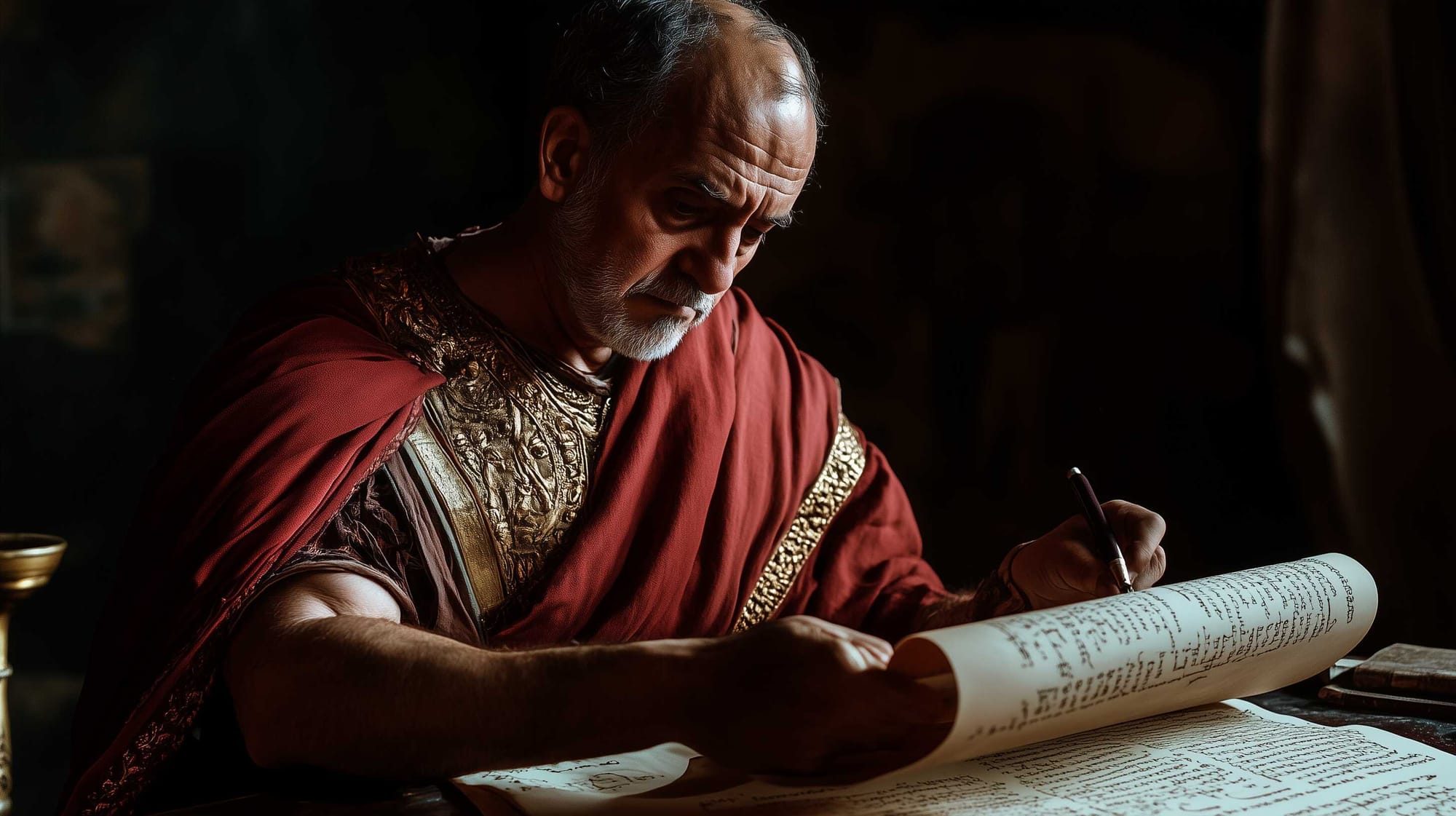
Cassius Dio and the Emperors
Under Emperor Severus, Cassius Dio served as consul and also held the position of amicus, or friend, to the Emperor. He participated in significant trials, such as that of Raecius Constans in 204, and frequently served on the imperial consilium. During Caracalla's reign, Dio remained an amicus principis, though he experienced some unfavorable treatment.
Caracalla, for instance, would summon senators early in the morning and make them wait until evening while he drank with his bodyguard soldiers. Dio left Caracalla's court between December 214 and April 215 and returned to Rome. He was in Rome when news arrived of Caracalla's murder and Macrinus' subsequent rise to power in April 217.
Dio stayed in Rome during most of Macrinus' reign and was present when Elagabalus was proclaimed emperor in May 218. Before Macrinus’ death and the revolt led by Elagabalus, Dio was appointed curator of Pergamum and Smyrna.
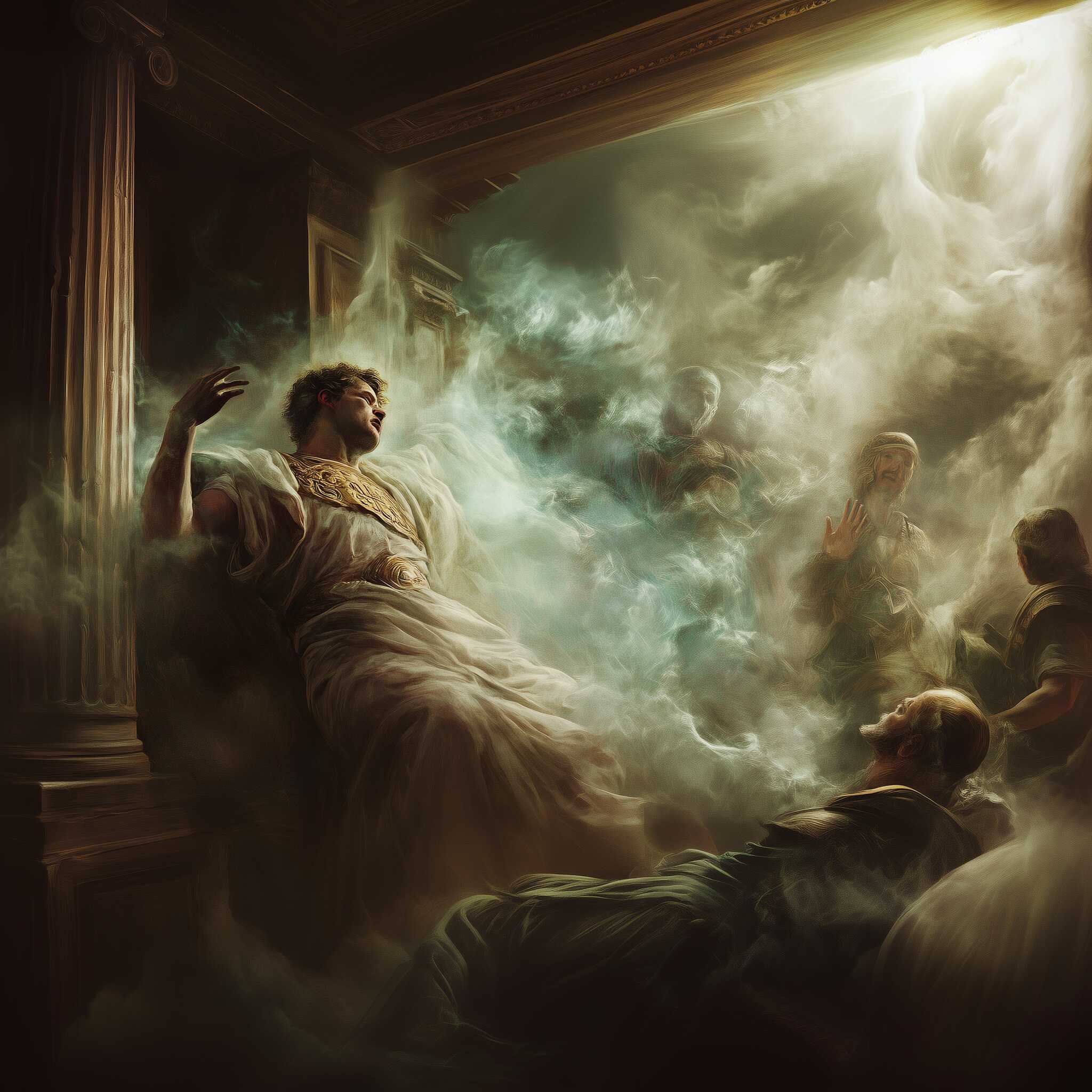
Towards the conclusion of his extensive historical work, Cassius Dio discusses his motivations & methods for Roman History, in two notable passages.
Cassius’ First Dream, Illustration: Midjourney
The first passage, set between Commodus' death on December 31, 192, and Pertinax's proclamation on January 1, 193, reveals that Dio's account of the ensuing years relied heavily on two earlier writings: one pamphlet detailing the omens and dreams that encouraged Septimius Severus to seek the imperial throne, and another document recounting the wars and turmoil following Commodus’ assassination. This pamphlet, essentially a defense of Severus' power grab, was sent to the emperor, who responded with generous praise.
That same night, Dio dreamt that his guardian spirit instructed him to document Severus' wars. Encouraged by the positive reception, particularly from Severus, Dio decided to write a comprehensive history of Rome up to his own time. He spent ten years gathering material from Rome's beginnings to Severus' death and another twelve years crafting the history.
In the second passage, after narrating Caracalla's death, Dio describes a dream where the deceased Severus, before Geta's murder on December 26, 211, instructed him to "learn accurately and write an account of all that is said and done."
These passages are often interpreted to suggest that Dio initially intended to end his history with Severus' death but later decided to extend it beyond February 4, 211. Some believe that the second passage indicates Dio completed his material collection by 211 before 212. However, another interpretation argues that the dream of 211 was the initial impetus for Dio's History, marking the start of his material collection.
This interpretation is compelling but not conclusive. Even though Xiphilinus typically transmits Dio's words accurately, he might have omitted details that would change the first passage's meaning. It may be prudent to avoid making definitive conclusions based solely on Dio's dream of the deceased Severus. (The Composition of Cassius Dio's "Roman History" by T. D. Barnes)
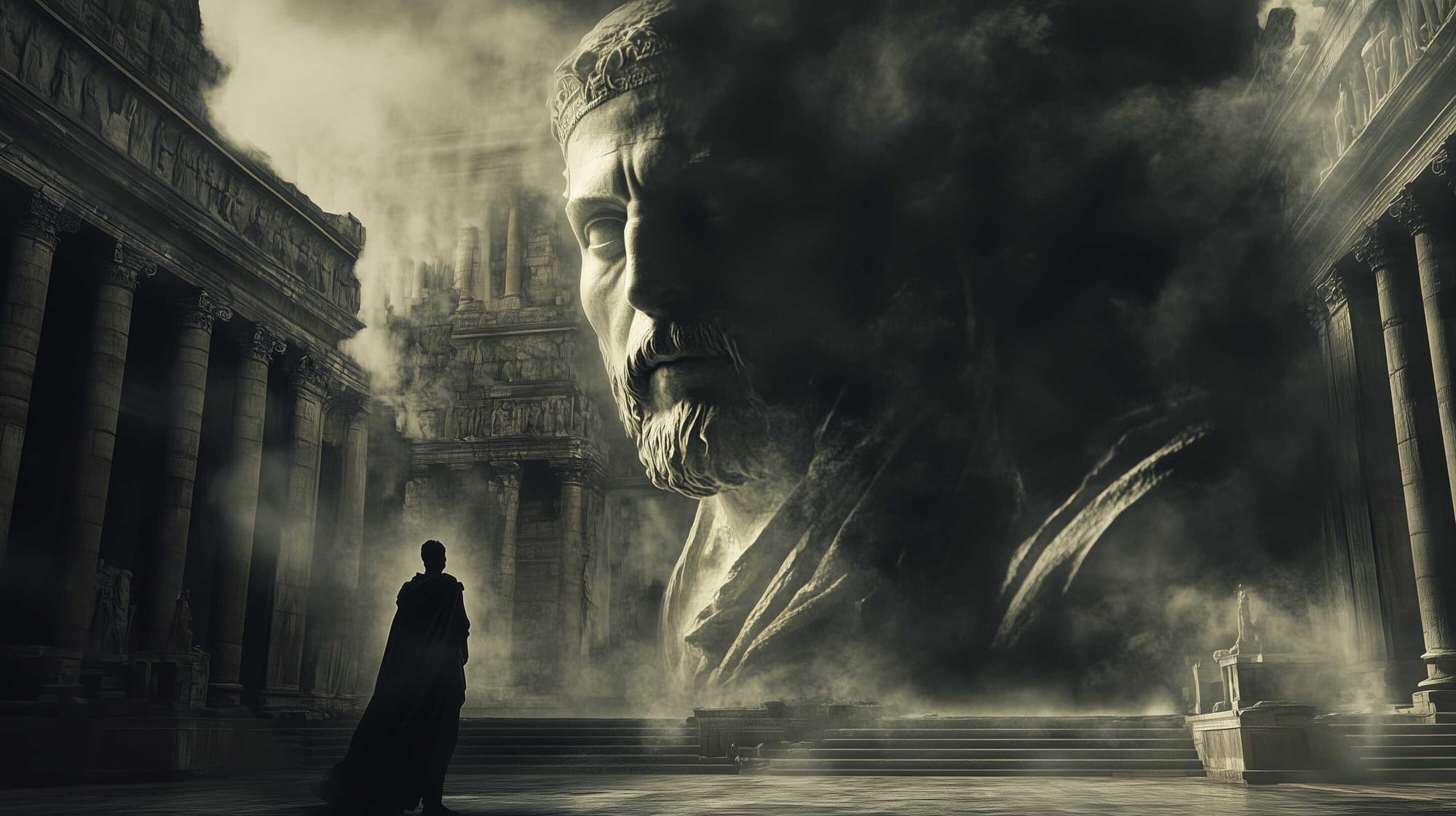
Cassius Dio’s Legacy
Joannes Xiphilinus, (also known as John Xiphilinus; Greek: Ἰωάννης Ξιφιλῖνος), who lived in Constantinople during the latter half of the 11th century AD, is known for his epitome of Dio Cassius.
A monk and nephew of Patriarch John VIII of Constantinople, Xiphilinus was also a renowned preacher. His epitome of Dio Cassius’ work was commissioned by Michael Parapinaces (1071–1078) but remains incomplete. It includes books 36–80, covering the period from Pompey and Caesar to Alexander Severus. Notably, in book 70, the reign of Antoninus Pius and the early years of Marcus Aurelius are missing, while books 78 and 79 were based on a damaged original.
Xiphilinus divided the work into sections, each focusing on the life of an emperor, and made several omissions and alterations, including removing the names of consuls. Despite its imperfections, his epitome is valuable for preserving key events from the period where Dio Cassius' original authority is lacking.
In contrast to his contemporaries, Cassius Dio marked the beginning of the Imperial Period from 31 BCE with the rise to power of Augustus (Octavian). Others, like Suetonius in his Twelve Caesars, started this period with the dictatorship of Julius Caesar.
Cassius Dio's history chronicles the rise of the Roman Empire:
“In this way the power of both the people and senate passed entirely into the hands of Augustus, and from his time there was, strictly speaking, a monarch, would be the truest name for it, no matter if two or three men did later hold power the same time.
The name, monarchy, to be sure, the Romans so detested that they called their emperors neither dictators nor kings nor anything of the sort; yet since the final authority for the government devolves upon them, they must needs be kings".
Cassius Dio, Roman History

Cassius Dio noted that emperors took on the titles and roles of the offices from the old Roman Republic, with the transition from republic to empire being a central theme in his writings. The monarchy brought stable governance to Rome. In later years, during the "tyrannical period," Augustus' reign was remembered as one of moderate freedom and civil peace.
Cassius Dio also outlined what makes a good emperor: such a ruler should avoid excess and refrain from degrading others, treat everyone as equals, be seen as virtuous and peaceful yet skilled in warfare. This balance would allow him to be viewed as both a savior and a father. Cassius Dio had a particular admiration for Augustus, believing that his wife Livia played a significant role:
“Augustus attended to all the business of the empire with more zeal than before, as if he had received it as a free gift from all the Romans, and in particular he enacted many laws. I need not enumerate them all accurately one by one, but only those which have a bearing upon my history….
He did not, however, enact all these laws on his sole responsibility, but some of them he brought before the public assembly in advance, in order that, if any features caused displeasure, he might learn it in time and correct them; for he encouraged everybody whatsoever to give him advice….”
Cassius Dio, Roman History
The precise date of his death remains uncertain. Some estimate it to be as late as 235 CE, while others only speculate that it must have occurred after 229 CE, the year of his final consulship.


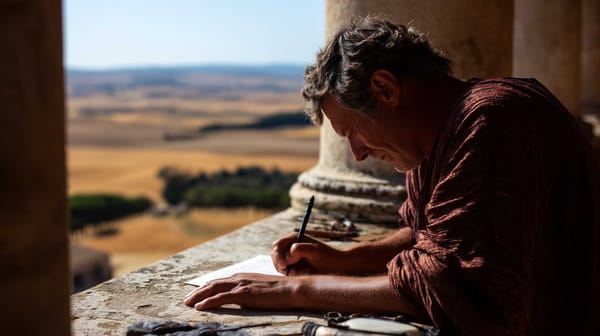
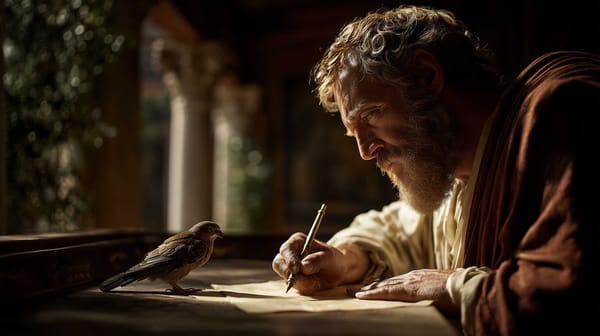

About the Roman Empire Times
See all the latest news for the Roman Empire, ancient Roman historical facts, anecdotes from Roman Times and stories from the Empire at romanempiretimes.com. Contact our newsroom to report an update or send your story, photos and videos. Follow RET on Google News, Flipboard and subscribe here to our daily email.
Follow the Roman Empire Times on social media: